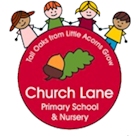History
History
“Ideas shape the course of history’ – John Maynard Keynes
‘There is history in all men’s lives’ – William Shakespeare
‘We are not the makers of history. We are made by history’ – Martin Luther King Jr.
At Church Lane Primary School and Nursery, we teach history to stimulate the children’s interest and develop their understanding about the past, both in Britain and the wider world. Pupils consider how the past influences the present, what past societies were like, and how beliefs and cultures influenced people’s actions. Such studies should help the children to understand more about themselves as individuals and members of society.
History teaching focuses on enabling children to think as historians. We recognise the importance of examining historical artefacts and primary sources, this is why the skills based history appears on our schools vital few. In each key stage, we give children the opportunity to visit sites of historical significance, regarding this as an important way of stimulating interest in the past. We encourage visitors to come into school to deliver workshops or share expertise of a particular area.
We believe the study of history should inspire children's curiosity and encourage them to ask critical questions. As a result, each of our history topics are lead by an overarching enquiry question. This is a question which is posed to children at the start of the unit and is referred to throughout allowing children to reach well rounded and justified answers. As well as this overarching question, each lesson is centred upon its own more focused question. This helps children to form connections and links between lessons, encouraging a learning journey.
Throughout each of these topics, explicit reference is made to our golden thread and silver strands of learning - Evolving People – Society’s changing views and beliefs’ .




